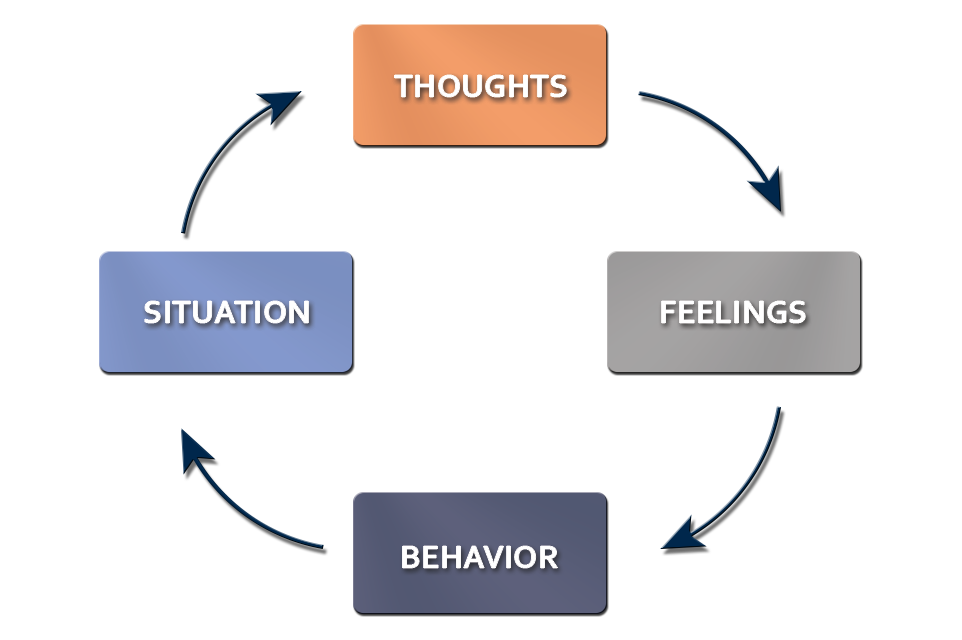Overthinking and Negative Thoughts: How to Think More Positively
- eunicesahn
- Jun 7, 2023
- 3 min read
Does it seem like there is always a running monologue in your head that is constantly analyzing situations, thinking negative thoughts, and it seems like you are the only one struggling with it? There are actually many people who struggle with it. However, some have learned how to manage the little thoughts in their head, although they may still struggle with it time to time. Here are some tips that may help you manage those negative thoughts a little better.
By: Eunice Ahn
What is Overthinking?

Overthinking is when you tend to excessively ruminate about a person, event, or situation in the extremes. These types of thoughts tend to be automatic: "pops into your head." The thought happens so quickly that it may be difficult to pinpoint the start, possibly leading to a spiral of negative emotions. However, once you start paying attention to your triggers, you may be able to catch yourself in future situations.

Evolutionally, we tend to pay more attention to negative thoughts. Negative thoughts helped us prepare for the worst-case scenarios, potential threats, and protect ourselves from other harm's way. This can now, however, sometimes lead to the mind tricking itself into believing that it is doing something beneficial. Especially since once you determine the source of the negative thought, the mind attempts to find a solution. Overthinking can also affect our emotions by heightening feelings of anxiety,
depression, and other negative emotions like hate, anger, jealousy.
For example,
You are waiting for a friend who is running late, but there seems to be no response from your friend despite you reaching out multiple times. Your mind then tries to find a solution by going through all the possible reasons. Some common spiraled negative thoughts in this situation may be "Do they not like me anymore?" "Why does this only happen to me? Does nobody like me?" These thoughts are meant to prepare us for all possible issues/solutions but instead, they may lead you to become physically anxious, irritated, angry, or disappointment/upset. These feelings may even cause you to send an aggressive, angry text to your friend for being late or ditching. Some other possible outcomes are giving the cold shoulder to them the next time you see them, not hanging out with this person anymore, and even lashing out to other people around you because you are so upset. The overarching idea in this example is that thoughts influence your emotions, which influences your behaviors, which affects your thoughts.

Some Tips to Stop Overthinking:
Decide which thoughts you are willing to accept or reject. You don't have to take every negative thought that pops into your head as the truth. Be introspective and identify why you tend to be pessimistic about certain parts of your life. Ponder what is the truth.
Retrain your brain. For example, you might find yourself ruminating a lot specifically before going to sleep. Attempt to retrain your brain to stop that habit by doing mind-clearing activities like mindfulness, meditation, and of the like. Feel free to check out a blog we have about breaking habits and starting new ones.
Practice positive self-talk. The language you use to talk to yourself can heavily impact your mentality. Consciously change the direction of your thoughts from "I can't do it, it's too difficult" to "Let me try this from another angle."
Journaling. This might be helpful for getting all your thoughts out of your head so that you are not overwhelmed (notes app, piece of paper, journaling notebook)
Go out and immerse yourself in nature. Research shows that taking a nice 90-minute walk in nature can decrease one's tendency to ruminate.
Cultivate optimism. Learning to think more positively is like strengthening a muscle: the more you use it, the stronger it becomes. Attribute good things in life that were done with your own skill/effort to yourself. And, don't blame yourself for unfortunate events as they are often out of your control!
Surround yourself with more positive-thinking people. Your environment is always really important as the people you spend most of your time greatly influence you.
If you have tried these tips and still struggle with intrusive, highly distressing thoughts to the point that it interferes with your ability to function, it might be helpful to seek out professional help. Cognitive-behavior therapy is an evidence-based practical approach that can help you manage your rumination, obsessive thinking, and negative thinking patterns. It focuses on the cycle mentioned earlier between thoughts, emotions, and behavior. Sometimes it may be difficult to determine your triggers and work towards being more positive all by yourself. In that case, schedule a free consultation by clicking the link below for additional support. Share this blog with someone else who you think can benefit from these tips. We also encourage you to sign up for free weekly tips, tools, and strategies by clicking the other link below.











Comments